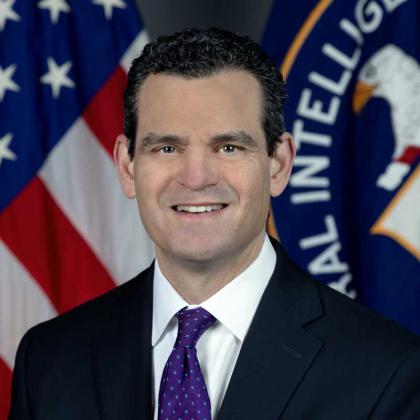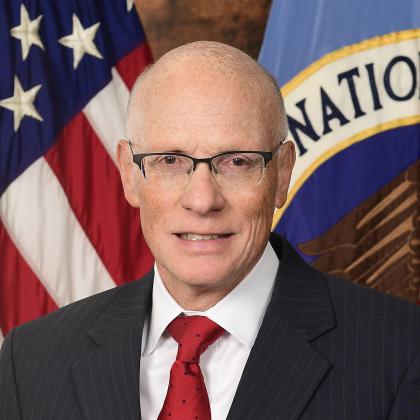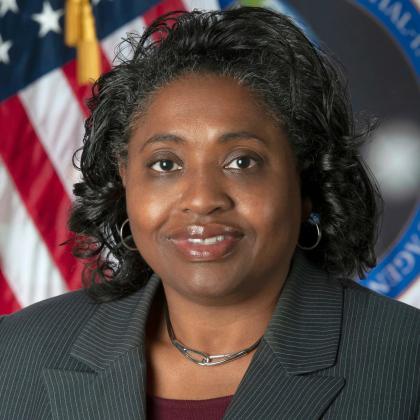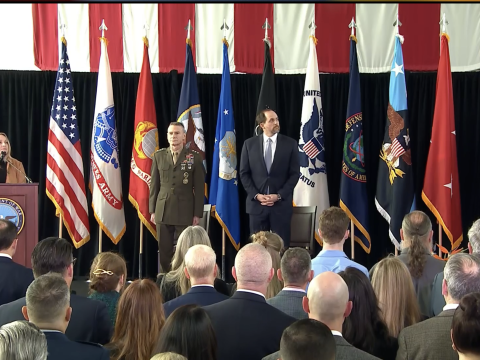U.S. Intelligence Leaders Emphasize Long-Term Support for Ukraine
Almost a year and a half into Russia’s unlawful invasion of Ukraine, intelligence community leaders are seeing some weaknesses in Russia and are bolstered by the continued large-scale support to Ukraine from democratic nations. While it may not be a stalemate, Ukraine is holding fast against its much larger invader.
Leaders from six U.S. intelligence community organizations offered their perspective on the war and other military and security topics today at the Intelligence and National Security Summit, hosted by AFCEA International and INSA, July 13-14 at the Gaylord National Resort, Maryland, The panel was moderated by Olivia Gazis, intelligence and national security reporter, CBS News.
“You could use the word grinding to describe the counteroffensive,” said John Kirchhofer, chief of staff, Defense Intelligence Agency (DIA). “We do see incremental gains by Ukraine. Over the summer, we haven't seen anything to really help them break through. We tend to focus on some of the munitions that we’ve provided to Ukraine and how some of those ‘holy grails’ may play out, like HIMARs [the M142 High Mobility Artillery Rocket System].”
Kirchhofer said said he sees NATO’s and other allies’ support over the long term as crucial to Ukraine. “I do think the success is the multi-year commitment from the West,” he said. “I think one of the things that the Russian leadership believes is that they can outlast Ukraine and the support of the West. To the degree that we can give confidence to Ukraine that we are in it for the long haul, I think that is a success.”
CIA Deputy Director David Cohen continues to see Russian President Vladimir Putin’s reasoning not based in reality. “We need to recognize that the motivation for the invasion of Ukraine came from some deeply rooted beliefs by Putin,” the CIA deputy director noted. “He does not view Ukraine as a different country. He sees Ukraine as a part of Russia. Now that's all insane. But it is very much what Putin believes.”
Those warped beliefs, however, have come up against the reality of a very stiff Ukrainian resistance, Cohen emphasized. “But whether or not that has fundamentally altered Putin’s deep-seated desires [regarding Ukraine], that remains to be seen,” he cautioned.
Moreover, the United States is appealing to Russians directly, with an effort by the CIA to join their ranks. “We have made it clear that we are open for business,” Cohen explained. “We are always recruiting, but this has created an environment in which Russians with a conscience are who we are interested in. Two months ago now, for the first time, we [began sharing a video] in Russian directed at Russians, appealing to their conscience, appealing to their notion that Russia can be something far better.”

Two months ago now, for the first time, we [began sharing a video] in Russian directed at Russians, appealing to their conscience, appealing to their notion that Russia can be something far better.
George Barnes, deputy director, National Security Agency (NSA), observed that Russia’s economy is not as strong as it once was, given sanctions and the cost of its war, calling it a “weakened” state. “I think they are very mindful of the fragility of their nation state,” the NSA leader noted. “Their economy is more in shambles than it was. And they can’t afford to have our retribution against them and so I think that has held them [in trepidation].”
From the FBIs perspective of protecting U.S. citizens, the threat from Russia, especially in the digital domain, remains constant, despite fewer than anticipated cyber attacks during its invasion of Ukraine. “We are in an elevated state, and the threat has been in our face for a long time,” said Paul Abbate, FBs deputy director. “And we've been working hard together [across the IC] and also with partners around the world to identify those threats coming out in advances and taking steps to be preventative in that way as well. We have to stay focused and disciplined every day.”

Their economy is more in shambles than it was. And they can’t afford to have our retribution against them and so I think that has held them [in trepidation].
Meanwhile, Tonya Wilkerson, deputy director of National Geospatial-Intelligence Agency (NGA), highlighted the role that geospatial intelligence (GEOINT) has played in the war, and the capability for additional data sharing, especially from the private sector.
“I think what we've seen is that the power of GEOINT has been brought to the Russia/Ukraine conflict and our understanding of what's happening on the ground,” she said. “Primarily for us, at NGA, is the noted high demand for new GEO products. And one of the things that has been really important to us is the partnerships that we have across our allies and being able to easily share information across the whole geospatial community.”
Wilkerson also noted that the availability of commercial imagery, and “the fact that it has been easily shareable has been hugely helpful.”

I think what we've seen is that the power of GEOINT has been brought to the Russia/Ukraine conflict and our understanding of what's happening on the ground
For Troy Meink, principal deputy director, National Reconnaissance Office (NRO), the intelligence community’s (the IC’s) role in sharing data and working together over the last two years has been tremendous. “I think one of the most impressive things I've seen in my career thus far is how quickly the IC shifted to support the Ukraine crises, even before war broke out,” he said.
The NRO will take the shifted atmosphere and leverage it into how it operates and the commercial solutions it purchases. “We’ve made huge process and we've learned a lot,” Meink stated. “And we're actually forwarding that into our future acquisitions, to make it even more easier on the national side [to share data].”
It’s been the most impressive shift I’ve seen in the #IC in my career with the ability to share data re:Ukraine, says Dr. Troy Meink, Principal Deputy Director, National Reconnaissance Office @NatReconOfc #IntelSummit23 @AFCEA @INSAlliance pic.twitter.com/3PUbMFqRUN
— Kimberly Underwood (@Kunderwood_SGNL) July 13, 2023



Comments